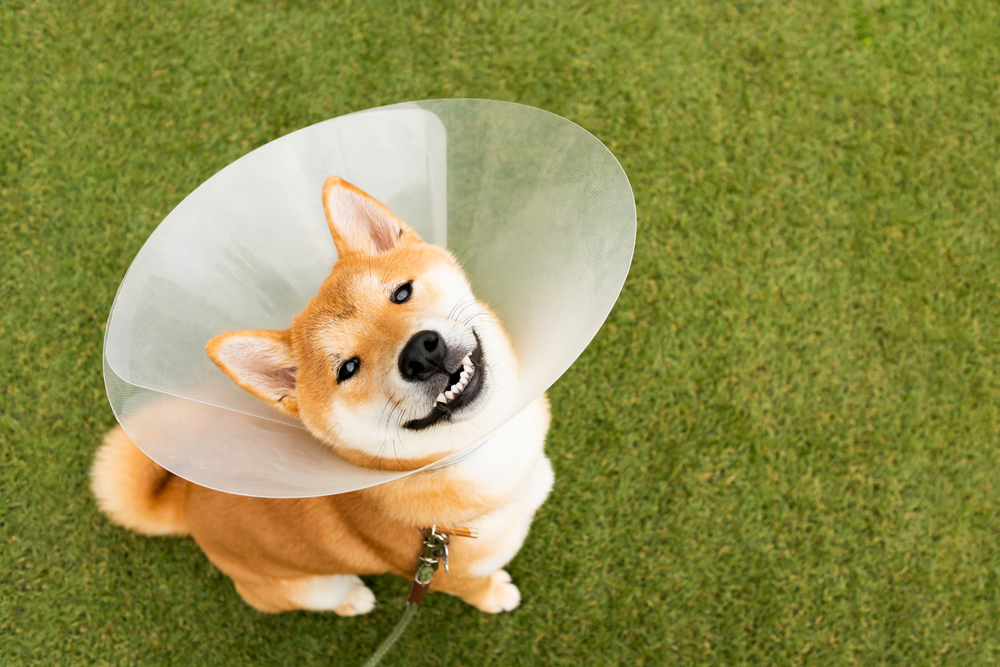
Undergoing surgery can be a stressful and overwhelming experience for both you and your beloved pet. While the surgical procedure itself is crucial, the post-operative care you provide is equally important for ensuring a smooth and successful recovery. Proper post-surgery care can alleviate discomfort, prevent complications, and facilitate a speedy return to your pet's normal routine.
Immediate Post-Surgery Care
Upon returning home from the veterinary clinic or hospital, your pet will likely be groggy, disoriented, and in need of extra care and attention. Here are some crucial steps to follow during the first 24-48 hours after surgery:
• Provide a quiet and comfortable resting area: Ensure your pet has access to a cozy, secluded space with soft bedding and minimal disturbances. This will help them relax and recover from the anesthesia and surgical procedure.
• Monitor your pet closely: Keep a watchful eye on your pet's behavior, appetite, and elimination habits. Note any unusual signs or changes, and contact your veterinarian if you have any concerns.
• Restrict activity and movement: Follow your veterinarian's instructions regarding activity restrictions. Depending on the surgery, your pet may need to be confined to a crate or small room to prevent excessive movement or exertion.
• Administer medications as prescribed: Carefully follow the dosage and timing instructions for any prescribed medications, such as pain relievers or antibiotics. Never give your pet human medications without consulting your veterinarian.
• Offer small amounts of water and food: Your pet may not have much of an appetite immediately after surgery, but it's essential to provide access to fresh water and offer small portions of their regular diet as recommended by your veterinarian.
• Provide gentle care and affection: While your pet may be groggy or uncomfortable, offering gentle petting, soft voices, and reassurance can help them feel secure and loved during this vulnerable time.
Managing Pain and Discomfort
One of the primary concerns after surgery is ensuring your pet's comfort and managing any pain or discomfort they may experience. Your veterinarian will likely prescribe pain medication to help alleviate your pet's discomfort. Administer these medications precisely as instructed, and never adjust the dosage or frequency without consulting your veterinarian first.
Pay close attention to your pet's behavior and body language. Signs of pain may include decreased appetite, lethargy, restlessness, whimpering, or reluctance to move. If you notice any of these signs, contact your veterinarian immediately.
Monitoring Your Pet's Surgical Site
Keeping a close eye on your pet's surgical site is essential for detecting any potential complications and ensuring proper healing. Your veterinarian will provide specific guidelines on how to care for and monitor the surgical site. Follow these instructions carefully, including any recommendations for cleaning, dressing changes, or activity restrictions.
Regularly check the surgical site for signs of infection, such as redness, swelling, discharge, or an unpleasant odor. If you notice any concerning changes, contact your veterinarian immediately.
Pets often attempt to lick or chew at their surgical sites, which can lead to complications and delayed healing. Use an Elizabethan collar (cone) or other protective devices recommended by your veterinarian to prevent this behavior.
Follow-Up Visits and Long-Term Care
While the initial post-operative period is crucial, your pet's recovery journey doesn't end there. Follow-up visits with your veterinarian and long-term care are essential for ensuring your pet's complete healing and well-being.
Your veterinarian will likely schedule one or more follow-up visits to monitor your pet's progress, check the surgical site, and make any necessary adjustments to their treatment plan. As your pet recovers, your veterinarian will provide guidance on when and how to gradually reintroduce physical activity and exercise. Stick to their recommendations to avoid setbacks or re-injury.
Even after your pet has fully recovered from surgery, it's essential to continue regular veterinary check-ups and preventive care to maintain their overall health and well-being.
Ensuring a Successful Recovery for Your Pet
Caring for your pet after surgery is a crucial responsibility that requires patience, diligence, and a deep understanding of your furry companion's needs. By following your veterinarian's instructions, providing a nurturing environment, and monitoring your pet closely, you can play an invaluable role in their recovery process.
If you have any concerns or questions about caring for your pet after surgery, schedule a consultation and let us help you navigate this important journey together. Visit Shore Pet Surgery at our office in Grasonville, Maryland, or call (410) 827-6464 to book an appointment today.





